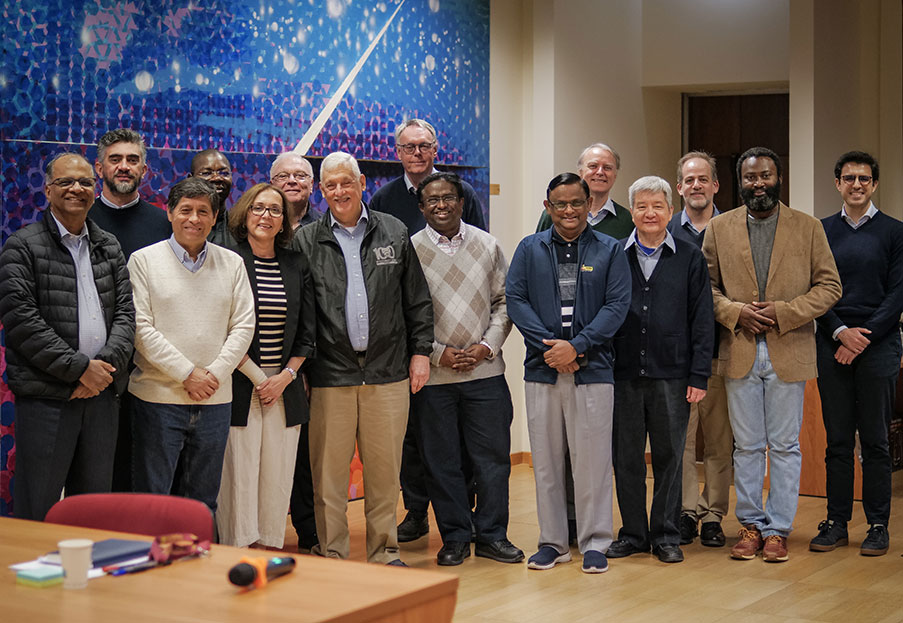Facing the Winds of Change
“No activity that promotes genuine human progress and builds bridges among peoples is alien to our faith-based service. It is with this humanistic vision that the Jesuits of Kohima, like their fellow-Jesuits elsewhere in the world, offer their service to the people of North-East India.”
This is the heart of Father General Arturo Sosa’s message to the alumni of the Jesuit schools of Phesama, in North-East India. For half-a-century, the Society of Jesus has been serving this community, one of the smaller villages in the Jakhama circle. Though the Kohima district, of which the Jakhama circle is part, has a literacy rate of 85%, that percentage falls dramatically as one moves away from the urban areas and into the villages. As such, much of the Jesuit ministry in the region has been focused on the establishment and maintenance of educational institutions to serve the often forgotten populations of this peripheral region. The Jesuit work in Phesama changes not only the lives of the students who have been trained by these institutions, but also what those in similar regions think is possible in serving the underserved. In the eyes of Father General, this type of ministry exemplifies the positive change that is made possible by a commitment to the spirit of service.
For his part, Fr. General alluded to the confusion generated by the fast pace of change in the village and reminded the alumni that St. Ignatius himself experience much of that same disorientation during the Renaissance.
“Much like our post-modern age caught in the whirlwind of bewilderingly rapid changes affecting every sphere of human life, sixteenth century Europe was going through a prolonged period of turmoil. The Renaissance, the Reformation and an exciting new scientific quest had created a climate of liberal humanism and an attitude of questioning. If it spread a great deal of disturbing doubt and confusion, it also generated a new energy and a determined search for new answers to new questions.
It was in this climate that Ignatius of Loyola and his six intellectually brilliant companions studied for seven years (1528-35). As lay students, they were exposed to the intellectual ferment, the liberal humanism and free open questioning prevailing there. And, having been schooled in theSpiritual Exercises, - the experience of encountering God and discerning God’s will for the world as well as for themselves, - even as young laymen they were able to meet these winds of change head-on. In discerning openness to God’s Spirit speaking to them in the signs of the times, they accepted what led to God and to genuine human progress; discarded what they found divisive; and fought against what was dangerous to a healthy social order.”
Speaking directly to the alumni, Fr. General asked them to have this acceptance; an energy of commitment at the heart of a rapidly changing world, the energy needed to move towards true progress. Fr. Sosa reminded them of some criteria for evaluating whether the education they received has really been fruitful.
“Your education in a Jesuit institution was intended to help you open your minds to wider horizons transcending mere self-interest, to take responsibility for yourself and for society, so that you become agents of social change, ‘men-and-women-for- and with-others’. The values you have assimilated in Jesuit education prepare you to engage the world in all its complex challenges and make a significant contribution to creating a more humane society. (...)
It is around this shared vision that our educational campuses seek to promote unity and harmony, embracing and transcending all diversity of religious, ethnic, tribal and linguistic identities. If this essential element is missing, however successful you might otherwise be in your careers, our education will have failed in its primary objective. It is not primarily academic results or achievements in sports or the beauty and facilities of an educational campus that measure the success of Jesuit education. It is the quality of life of our alumni/alumnae. This is the best evidence, that the values for which the Society of Jesus was established, and which we try in our lives and through our educational institutions, to share with our staff and students, have had some measure of success.”







